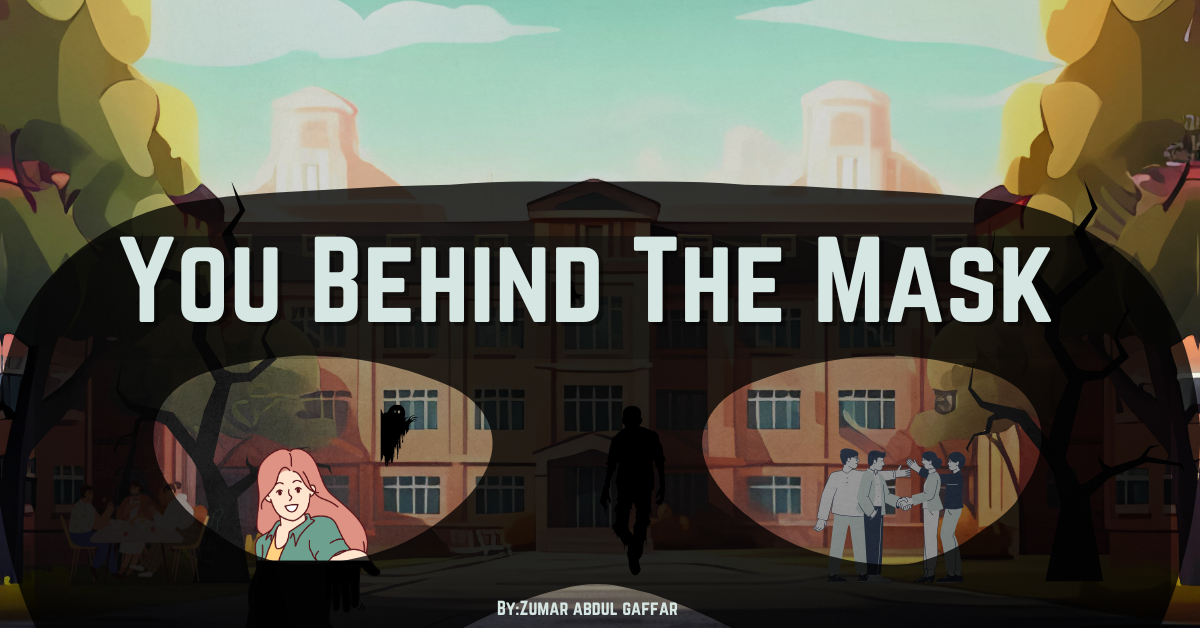You step into the grounds of what most consider the epitome of education—a socially interconnected abode of learning, known as your college. With every step towards your class, the impassive onlooker waving at you shapeshifts into a… friend? Yeah, friend. The sigh stuck in your throat oozes to get out as you gulp the uneasiness in and wave back with an enthusiastic “hey, wassup!”
Soon, more faceless creatures join in, conversing about topics irrelevant to your current state of mind. But maybe… the ones at the front aren’t faceless—it’s you unable to grasp their expressions, either because you don’t want to or because you’re conserving your energy for something… something you can’t even point a finger to.
The engagement is abundant at front, yet you feel the connecting threads skimming right past you, never quite touching. You’re the third-person perspective in your own narrative—watching, observing, but never truly participating. Every casual greeting reminds you of your perpetual outsider status, each interaction carving deeper the ‘not fitting’ scar in your inexplicably complex mind.
You mirror others’ habits, desperately trying to blend in and feel connected. With some friends, you laugh and share moments, but even then, you’re performing—adopting their personas, hoping it might help you feel less alone. With others, you hang out out of obligation, each awkward exchange pressing down on you.
More people wave past you, but you can’t recall their names or if you’re even friends. You wonder why you feel so irrelevant amidst all the social interaction. Even when conversations shift to topics you enjoy, a heavy weight presses down, causing your words to stifle. You sit back as a listener, a quiet observer, swallowing your thoughts to give others room to speak, afraid to overstep and seize chances from others. Your heart is heavy with the knowledge that you’re not truly present, as when you withdraw into silence, you feel that familiar ache of disconnection returning, wanting to be alone as solitude might be your only solace at this point.
You’re trapped in a cycle of expectations—narratives about being social animals ingrained in you since childhood, every job posting and university application emphasizing social skills, heightening your sense of inadequacy. You begin to feel inhumane, like a robot programmed to act a part, unable to connect with normal human emotions.
Why don’t you feel the same joy as others while receiving gifts or good news? Why does happiness seem to slip through your fingers? You question whether it’s you or the world around you that’s broken, spiraling into guilt and confusion as you ponder the disconnect between your internal landscape and the vibrant lives of those around you.
In this whirlwind of interactions, you’re left grappling with an unsettling thought: Is it possible to truly connect with others while feeling so profoundly disconnected? As the faces blur into a chaotic tapestry of expectations, you wonder—do they feel the same alienation? What does it mean to be social in a world where connection feels so superficial? And ultimately, is this the price of belonging in a space where everyone is expected to fit in, yet no one truly does?
Perhaps in the constant ebb and flow of interaction, the feeling of not quite fitting in is less an anomaly and more a quiet, unspoken truth we all carry in different ways. Maybe the faces that seem so connected are, in fact, masked like your face, grappling with their own inner voids—just as distant, just as unsure. Belonging, then, might not be about constant engagement or feeling joy every moment, but about acknowledging the ebb and flow of connection and realizing it’s okay to feel out of sync.
In the end, maybe it’s not about fitting into the social puzzle or masking alienation, but about embracing the quiet moments in between—the ones where you can reflect, recharge, and simply exist without pressure to be anything other than yourself. True connection, then, might lie in accepting disconnection as part of the human experience, a thread that binds us all in ways we rarely admit.
And in that realization, maybe—just maybe—we’re not as alone as we think.
By Zumar Abdul Ghaffar,
Writer (Team 2024-2025)

